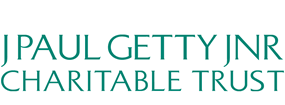
Similar interests
- Casinos Not On Gamstop
- Non Gamstop Casinos
- Casino Sites Not On Gamstop
- Gambling Sites Not On Gamstop
- Non Gamstop Casinos
- Non Gamstop Casino UK
- UK Casinos Not On Gamstop
- Non Gamstop Casinos
- Casino Not On Gamstop
- Non Gamstop Casinos UK
- Non Gamstop Casinos UK
- Best UK Casinos Not On Gamstop
- Gambling Sites Not On Gamstop
- UK Casinos Not On Gamstop
- Casinos Not On Gamstop
- Non Gamstop Casino Sites UK
- Slots Not On Gamstop
- Gambling Sites Not On Gamstop
- Casino Sites Not On Gamstop
- Best Non Gamstop Casinos
- Casino Not On Gamstop
- Non Gamstop Casino UK
- Casinos Not On Gamstop
- UK Casinos Not On Gamstop
Social welfare
The Trust supports a range of work to alleviate poverty and help people to overcome disadvantage, and our key priorities are:
Mental Health
Under this category, we fund work supporting adults with severe and enduring mental health problems, particularly projects that enable sufferers to manage their condition more effectively and participate more fully in community life e.g. sheltered employment schemes, therapeutic arts projects, gardening and horticulture activities etc. We are also interested in self-help schemes and respite programmes for people under stress, particularly families in difficulties.
A key focus of our mental health funding is support for people with addiction problems, especially drug and alcohol addiction, and related problems.
Counselling may be funded when it forms part of a broader programme of support, but we do not generally fund projects where counselling is the sole or main activity.
Please note that this category does not include programmes exclusively for people with learning (or indeed physical) disabilities.
Offenders
The Trust funds work with offenders, both in and out of prison. Our main priority is to support initiatives that will break the cycle of re-offending e.g. by enabling offenders to develop basic life and job skills, helping to resettle offenders in the community and allowing them to maintain positive relationships with family and friends.
Homelessness
As with other categories, we are interested in projects that improve the long-term futures of adults and young people who are homeless, or at risk of homelessness. We tend to favour projects which work directly with vulnerable people to prevent them becoming homeless or provide them with the advice and skills they need to resettle more permanently.
Given our focus on long-term support, we do not generally fund short-term 'fixes' such as providing hot meals, food parcels and home starter packs, although we certainly recognise the huge value and comfort that these services can bring.
Young People and Communities
In this category we are most interested projects that enable disadvantaged young people to access constructive, enjoyable activities close to home. We favour projects that are youth-led and allow young people to develop their skills, self-confidence and aspirations e.g. through volunteering, work experience or a variety of creative activities.
As our focus is always on longer-term benefits, we are unable to fund one-off events or residential trips, including outdoor adventure activities and challenge or fundraising events.
Employment and Volunteering
We support a range of projects helping unemployed people to secure work or, where this is not possible, enabling people to improve their skills and self-confidence by making constructive use of their enforced leisure time.
The Trust is especially interested in schemes set up and managed by unemployed people, and projects providing specialist employment advice and training to people who have been out of work for a considerable length of time or face specific barriers to employment e.g. language difficulties, poor basic skills or a criminal record.
Ethnic Minorities
We favour projects helping members of ethnic minority groups who fall within any of the categories already outlined i.e. mental health, offending, homelessness, youth and employment.
We also support projects assisting refugees and asylum-seekers, especially those which are aimed at enabling individuals to participate more fully in their new community.
We are particularly interested in projects which encourage better integration among people of different nationalities and backgrounds.
Please note that the Social Welfare category does not include medical care or general health and wellbeing programmes, as these areas are currently not priorities for the Trust.